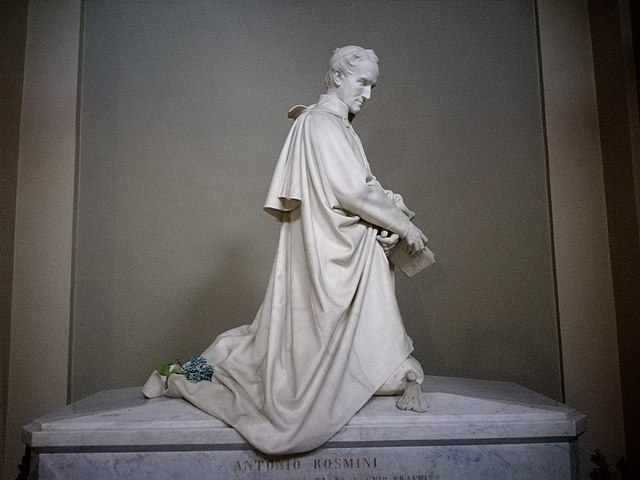Adam MacLeod, a law professor at Faulkner University in Alabama, wrote a couple of years ago in the New Boston Post of “chronological snobbery,” the idea that “moral knowledge progresses inevitably, such that later generations are morally and intellectually superior to earlier generations, and that the older the source the more morally suspect that source is.”
We don’t have to look too hard to see how widespread this attitude is now. No other age has had the hubris of ours. No other age has been so contemptuously dismissive of the past because it’s the past. So many quarters define their pet novelties as “progress,” which somehow automatically equates to “better.”
For example, the Catholic LGBT advocacy group New Ways Ministry’s shallow response to Male and Female He Created Them – the Vatican’s recent declaration on transgenderism and gender identity – says that the statement is a step backwards and is rooted in the “Dark Ages.” Of course, our ideas now must be better, because we have them now. Oh, those poor benighted folks of the past who didn’t know how to think for themselves, or how to think at all.
New Ways says the Church’s position relies on “myth, rumor, and falsehoods.” To me that sounds like a more accurate depiction of their own position. But who cares? Our twenty-first-century myths are reliable and true! They must be, since they’re modern.
Blessed Antonio Rosmini — an Italian priest, philosopher, and political theorist who died in 1855 and whose thought was in many respects ahead of its time — wrote in his Philosophy of Politics:
The supreme respect we see given throughout history and by all nations to their first institutions has therefore a deep reason. Some so-called philosophers ridiculed this respect, declaring it blind ignorance and servile obsequiousness to authority; in short, stupidity. They did not see the reason for this respect. They did not understand that it is an effect of principle of nature, an effect of a rational law; that there is something deeper in the common sense of nations than in the empty theories of a few individuals, and that our vision, guided by a series of experiences from the distant past, is more likely to see what is true than an imagination unbridled by facts, which roams about in the world of the unusual and of the possible. Let us therefore be convinced that the first institutions are necessarily those on which a society is founded. The founders had to attend to bringing into existence what did not exist; they had no time to think about accessories.
But I have to say that I’ve noticed an unbalanced tendency in the opposite direction as well, for instance among some traditionalist Catholics who pine not just for traditional liturgical and ecclesial forms (to which, for the record, I am quite partial) but for the old forms of pretty much everything else as well: let’s bring back feudalism and guilds, and dispense with modern expedients like experimental science and particle board! (That may sound like a haphazard assortment of targets, but I’ve personally heard arguments regarding all of them.)
A more concrete historical example may be that of Rosmini himself. In 1887, 32 years after the priest’s death, Pope Leo XIII issued Post obitum, a formal condemnation of 40 Rosminian propositions. But in 2001, the Congregation for the Doctrine of the Faith under then-Cardinal Joseph Ratzinger published a new decree that had this to say: “The motives for doctrinal and prudential concern and difficulty that determined the promulgation of the Decree Post obitum with the condemnation of the ‘40 Propositions’ taken from the works of Antonio Rosmini can now be considered superseded.” Rosmini was beatified six years later.
I think it should be clear that not everything old is untouchable, or even good, just because it is old. Rosmini puts it well in the passage immediately following:
We should not be deceived. This natural, wise respect does not oblige us to oppose useful innovations, but to distinguish accurately between innovations which destroy what is old, and innovations which add to what is old. Relative to those which are aimed at destroying anything ancient, we must proceed with greater diffidence and caution. The innovators must be certain that they are destroying merely a prop or scaffolding, not principal arch or a column. Relative to innovations which add but do not destroy, and therefore entail less danger of harming society’s existence, we must act in such a way that what is new harmonises well with the old and corresponds to the toothing left by the first builders.
The obvious conclusion here would be to say “in medio stat virtus” and advocate balancing tradition and novelty. But that seems too trite, somehow, and it leaves open the question: By what standard should we judge?
In an attempt to be slightly more specific, I would say this: The key is to keep in mind our objective principles and judge old and new in light of them. Some principles are prudential and some are essential, and it is imperative to know the difference. This requires some discernment, but no worthwhile conclusion can be reached without discernment. This is even more true when discussing the fundamental ideas on which society rests.
(Photo: Bl. Antonio Rosmini. Credit: Carlo Orto. CC BY-SA 4.0)
